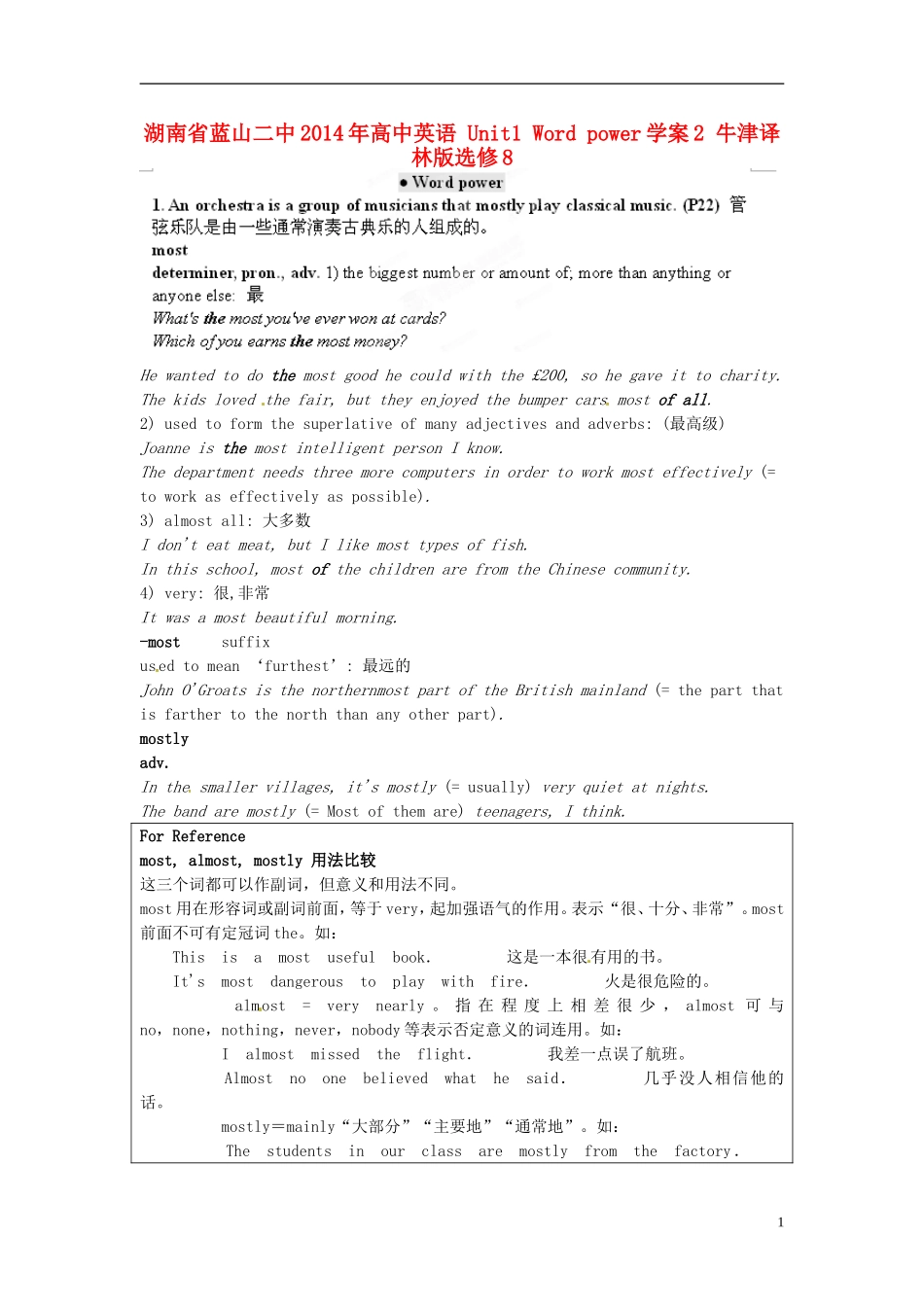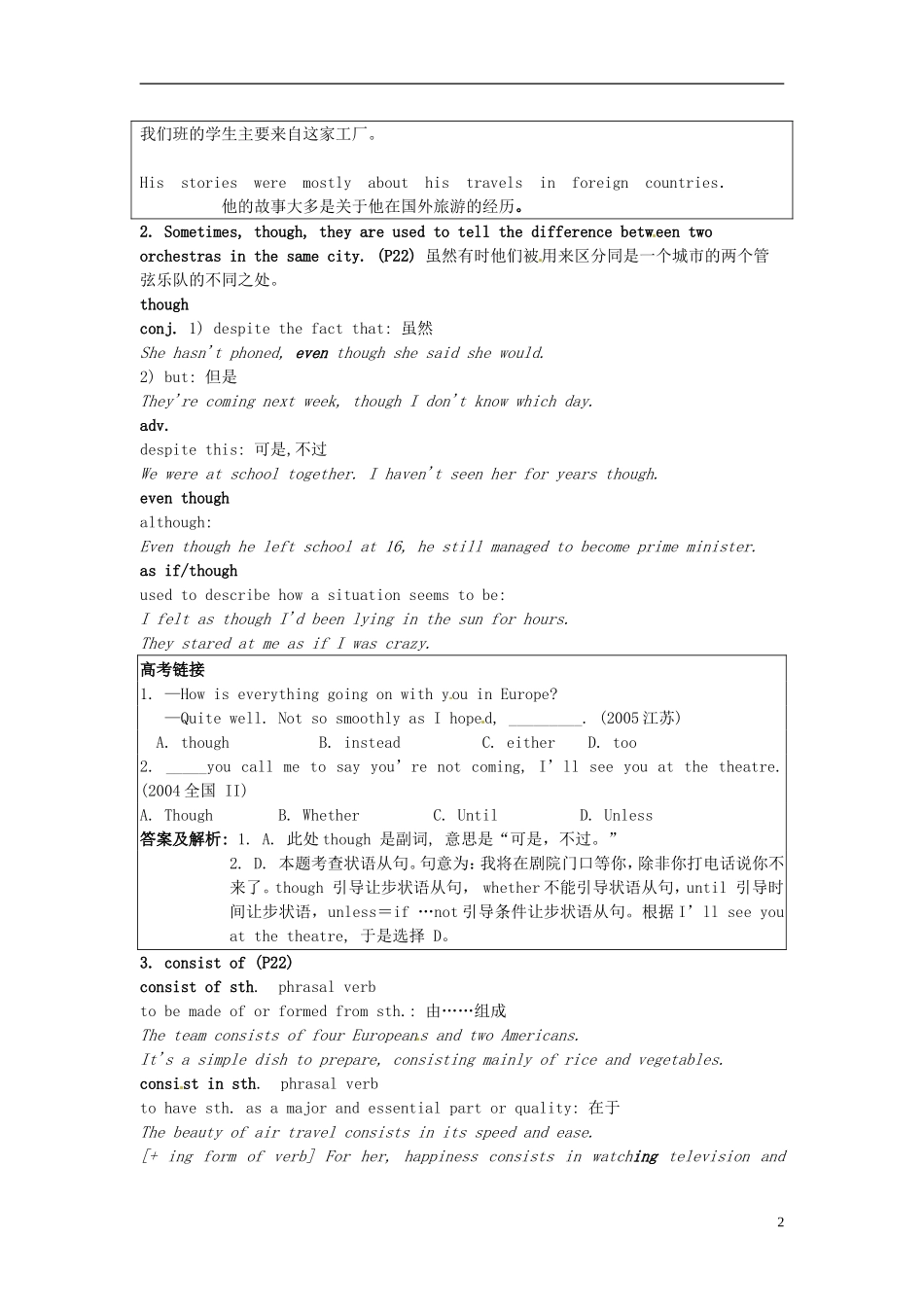湖南省蓝山二中 2014 年高中英语 Unit1 Word power 学案 2 牛津译林版选修 8He wanted to do the most good he could with the £200, so he gave it to charity.The kids loved the fair, but they enjoyed the bumper cars most of all.2) used to form the superlative of many adjectives and adverbs: (最高级)Joanne is the most intelligent person I know.The department needs three more computers in order to work most effectively (= to work as effectively as possible).3) almost all: 大多数I don't eat meat, but I like most types of fish.In this school, most of the children are from the Chinese community.4) very: 很,非常It was a most beautiful morning.-most suffixused to mean ‘furthest’: 最远的John O'Groats is the northernmost part of the British mainland (= the part that is farther to the north than any other part).mostly adv.In the smaller villages, it's mostly (= usually) very quiet at nights.The band are mostly (= Most of them are) teenagers, I think.For Referencemost, almost, mostly 用法比较这三个词都可以作副词,但意义和用法不同。most 用在形容词或副词前面,等于 very,起加强语气的作用。表示“很、十分、非常”。most前面不可有定冠词 the。如:This is a most useful book. 这是一本很有用的书。It's most dangerous to play with fire. 火是很危险的。 almost = very nearly 。 指 在 程 度 上 相 差 很 少 , almost 可 与no,none,nothing,never,nobody 等表示否定意义的词连用。如: I almost missed the flight. 我差一点误了航班。 Almost no one believed what he said. 几乎没人相信他的话。 mostly=mainly“大部分”“主要地”“通常地”。如: The students in our class are mostly from the factory. 1我们班的学生主要来自这家工厂。 His stories were mostly about his travels in foreign countries. 他的故事大多是关于他在国外旅游的经历。2. Sometimes, though, they are used t...


